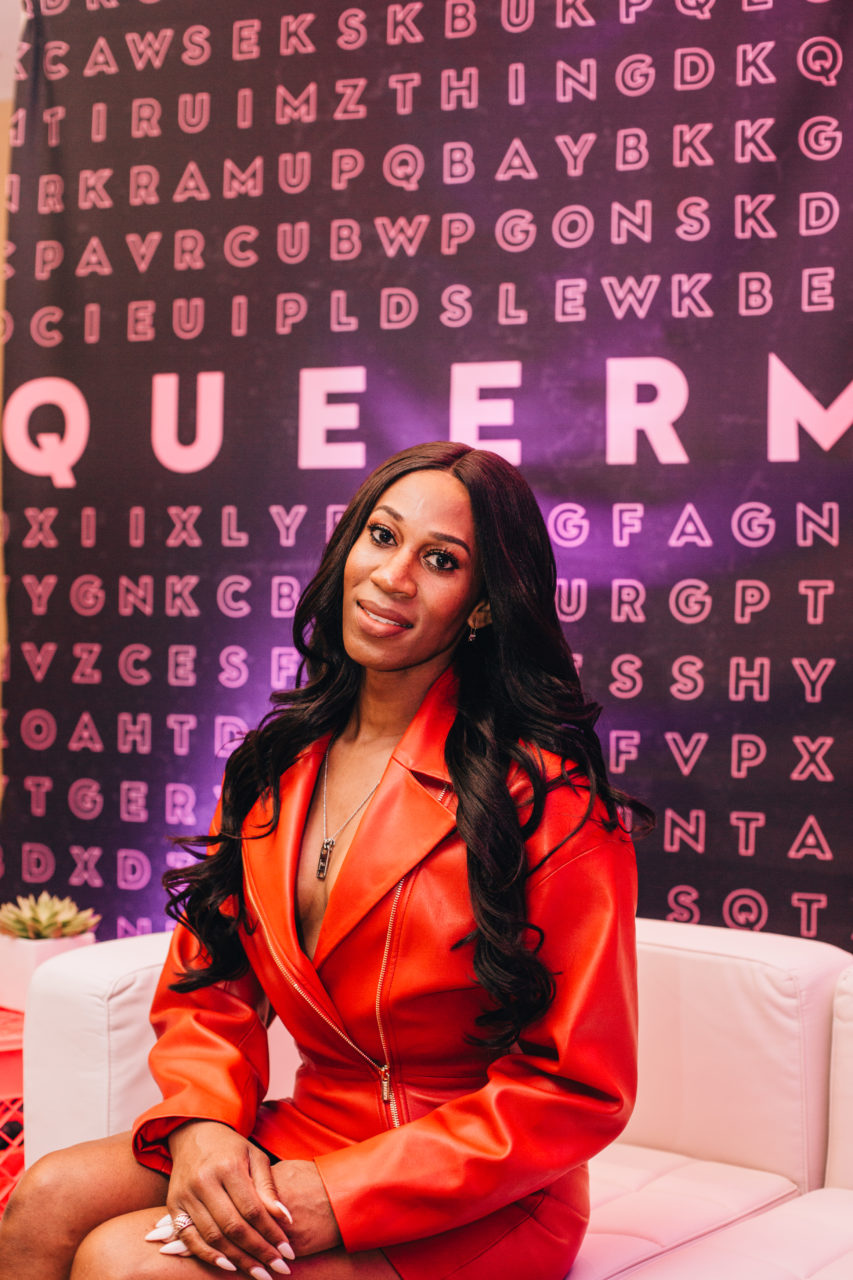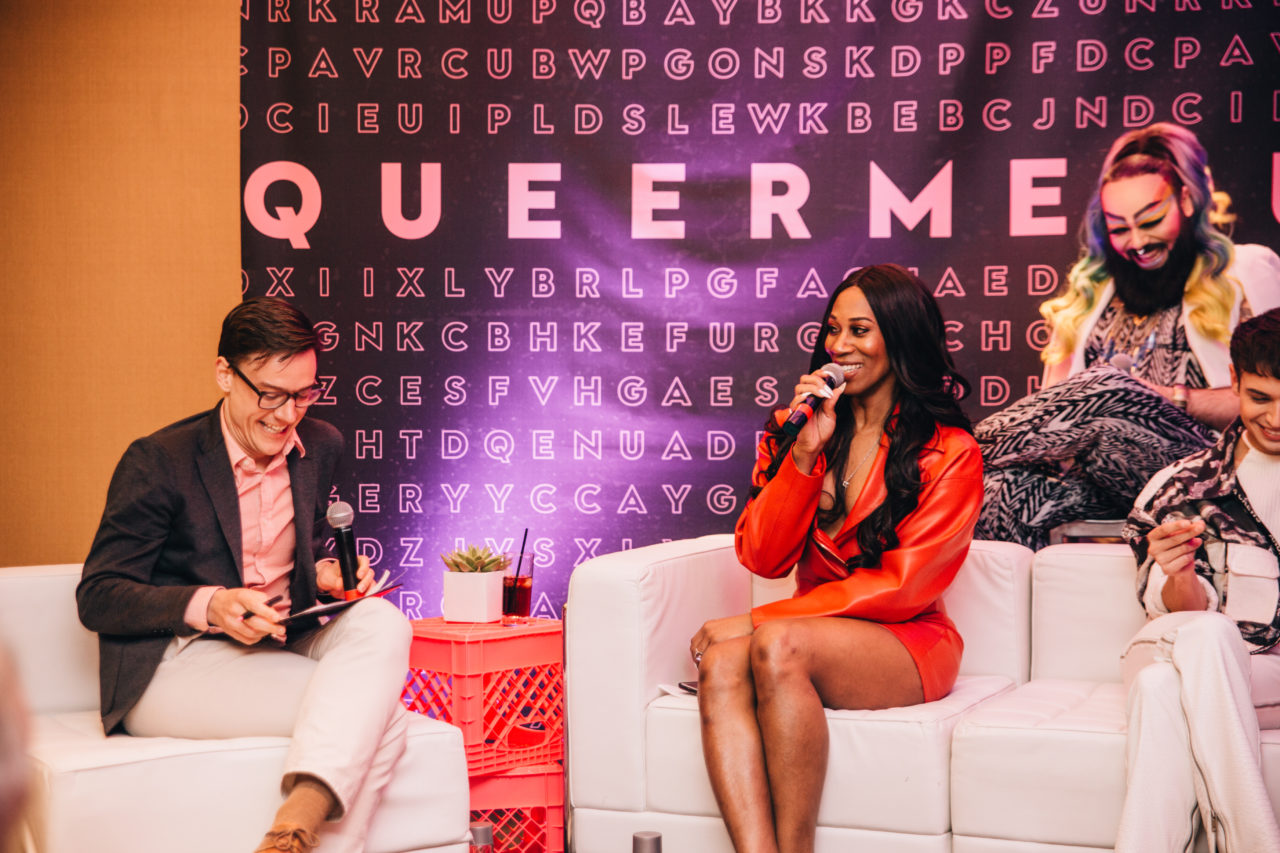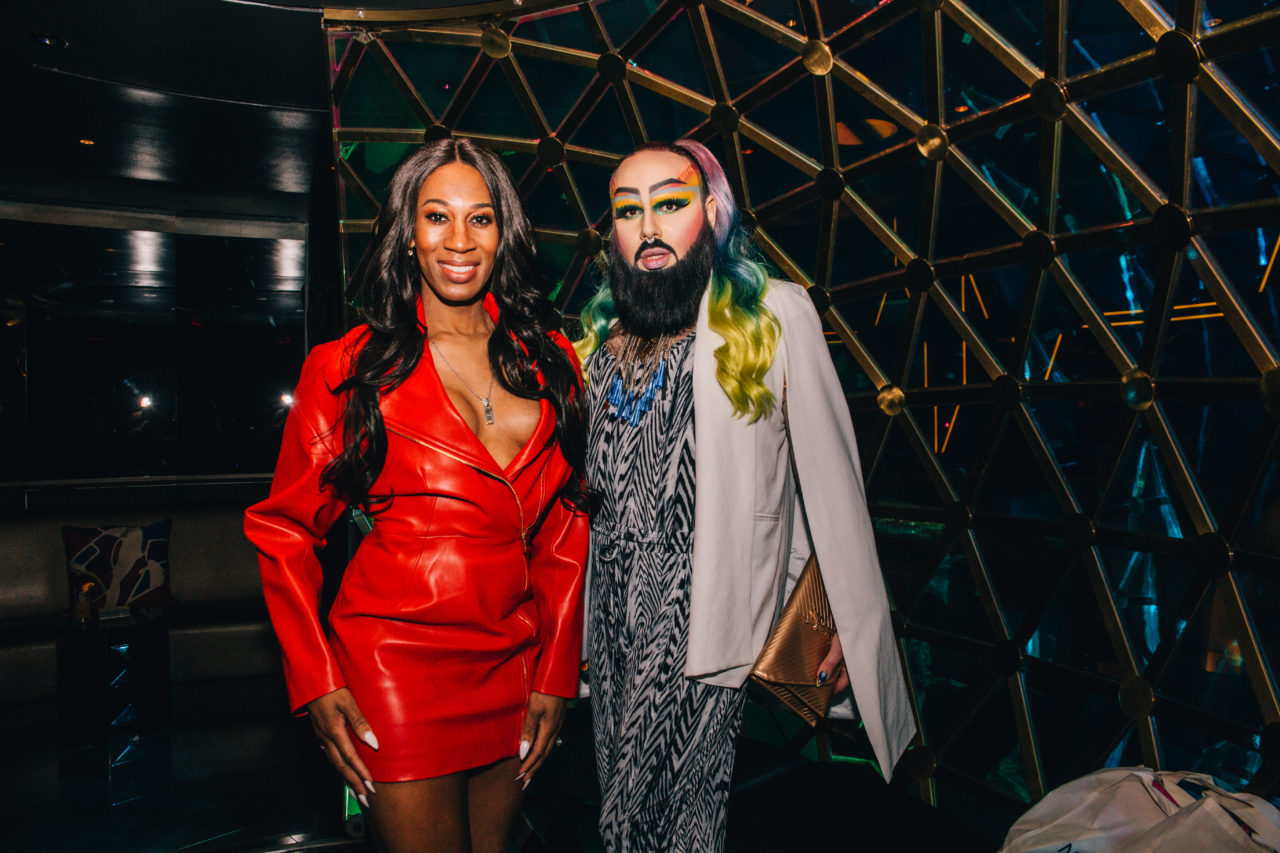
Mila Jam became a viral Youtube sensation for her parodies of pop songs that she created under the moniker Britney Houston while simultaneously performing as part of the Broadway tour of “Rent.” Inspired by her musical idols like Brandi, Janet Jackson, Whitney Houston, and Mariah Carey, Jam made the switch from Youtube star to pop culture phenom. Now, she’s a singer, actress, and self-proclaimed “artivist” who looks to her day-to-day life as inspiration for her content.
As a transgender activist and trans woman herself, her music is informed not only by her experience but those of trans women around her. She’s released a number of singles, including “Like The Last Time” and “Twilight Zone,” that are accompanied by music videos that not only reflect the multihyphenate’s love of music but her activism as well. In the 2018 video for her song “Bruised,” Jam was joined by stars and friends, including Laverne Cox and MJ Rodriguez, to paint a haunting visual of the cycle of violence and abuse in relationships for trans women of color. In the short film “Black Star: Mila,” Jam is ethereal on-screen as she waxes poetic about the future of the black experience in “a love letter to black women, a tribute made up of four elements- lullaby, reflection, fear and defiance.” She has also appeared in “One Stride: Chosen Family,” where she talked about her friendship with Rodriguez and what it means to choose your loved ones. This is Jam’s raison d’être: creating art that allows her voice to be representative of her passion while still carving out space for change to be made.
Jam most recently spoke on the panel of “Queer Me Out: What Is Love?” The panel is part of W Hotel’s “Queer Me Out” speaker series that focuses on “empowering the LBGTQ+ community through the inspirational stories of some of the world’s top LBGTQ+ trailblazers, entrepreneurs and influencers.” We caught up with the artivist after the event at W New York – Times Square to chat about everything from music to love. Check out her answers below.

GO Magazine: What ignited your passion for music?
Mila Jam: Music is just everywhere, and I think everyone grows up inspired by some musicians. For me, I grew up performing since I was three, so I think that the iconic pop figures of the ‘70s, ‘80s, and early ‘90s…they just inspired me. I always knew that I wanted to be me, and I always felt like I didn’t have a Mila Jam growing up, which is part of the reason I do what I do because maybe along the way I’ll inspire someone who can see themselves reflected in what I do.
GO: Your music, activism, and identity seem to be so intertwined. What was the purpose of that? Why is it so important for you to write music that is so rooted in your experience?
MJ: A songwriter once told me that people will connect more with things that are honest and true from your experience than they will with things you try to write to try to make important and fabricate. I just felt like that really resonated with me, and my legacy—I wanted it to be something real. There’s so much opposition with my life being seen as real, because a lot of people think I’m fake being in the queer community, being a trans woman. They think that trans people are fake, or they’re not real, or they want to be something that they’re not. I just want people to be like, ‘oh, ok. I relate to her. I understand where she’s coming from.’ These are human emotions, and the way I express them is just like how anyone else would express them.
GO: In your music video for “Like The Last Time,” the main actor is completely blurred out. I read that the person you got to play that part later retracted his participation after finding out you’re trans. Was that the inspiration for dedicating the video to “silenced lovers,” or was that the intention all along?
MJ: We were going in with the goal to make a music video that just really showed the tender side of a discovery of love: a guy and a girl meeting and falling in love and having a moment. That’s the simplicity that I think every trans woman wants, so the narrative really shifted to what actually really happens. We were able to show that by just being open with expressing it and putting it out. I talked to my manager about it for a couple of months; we didn’t know if we should release it and if we should do what we planned. Because the guy didn’t want to be seen, it just exemplified that most of our partners don’t want to be seen, and they don’t want us to be seen. They don’t want people to see us. I thought that was bigger than me, and I felt like it would resonate with people.

GO: You talked a little bit about how, at the moment, you’re taking time to just love yourself. Why is taking time from dating to give to yourself a powerful step to you?
MJ: I think I’m fed up. As simple as it is, I think I’m just frustrated. Our lives happen in so many cycles and, no matter how long you’re going to live, you have to sort of turn over a new leaf, try new tactics, and try something different. For me, at this moment in time, it’s about not taking any crumbs. I talk about how I’m so used to accepting all the crumbs that maybe men want to give us, but I’m sort of tired of that. I think I want to start approaching any potential partners…with the upfront ‘this is what I’m looking for, and this is what I have to offer, and if you’re not looking for that, why are we wasting time?’
GO: How can people outside of the trans community make sure that trans support and acceptance continues and isn’t just a “trend?”
MJ: Know that we’re not a trend. We’re trending, and we’re not a trend. I think that’s really how I would put it, because, even if in 10 years the tipping point is over or there’s not a wave of ‘let’s get into transness,’ it’s really about humanity. … Everyone now knows someone who is gay. Everyone has seen someone gay on TV, or a friend, or a cousin, or a family member, but not everyone knows someone who is trans. Not everyone has a direct connection to it. I think that’s also important, because, when you have those direct connections, you can see things differently. So, maybe in 10 years—actually, I hope in like two years, like in two weeks—that people will say ‘I know someone who is trans and they’re amazing, and they’re cool, and I support them.’
GO: What’s the one thing you want people to take away from your art and activism?
MJ: I think we are in an interesting time where we are really being able to tell our stories, and I think stories are really what people connect to. From the age of just books to technology, we have this vast connection of reading about anything and everything. Now, it’s all at our disposal, and it’s at our fingertips. I think we have to harness that in the most positive way possible. There’s a lot of good, bad, and evil within it as well, but I think the more we sort of share these experiences and talk and have the dialogue—I think that’s how we grow. That’s like the wave of the future because things are going to change, … all this stuff is going to happen, and we have to continue having the conversation and continue sharing our stories.
Mila Jam is set to headline the GLAAD Media Awards in New York City on May 4th. She can be seen in an upcoming “Black Box Sessions” on Logo TV. Jam can also be found online @themilajam (Twitter, Instagram) and @milajammusic on Youtube.

What Do You Think?